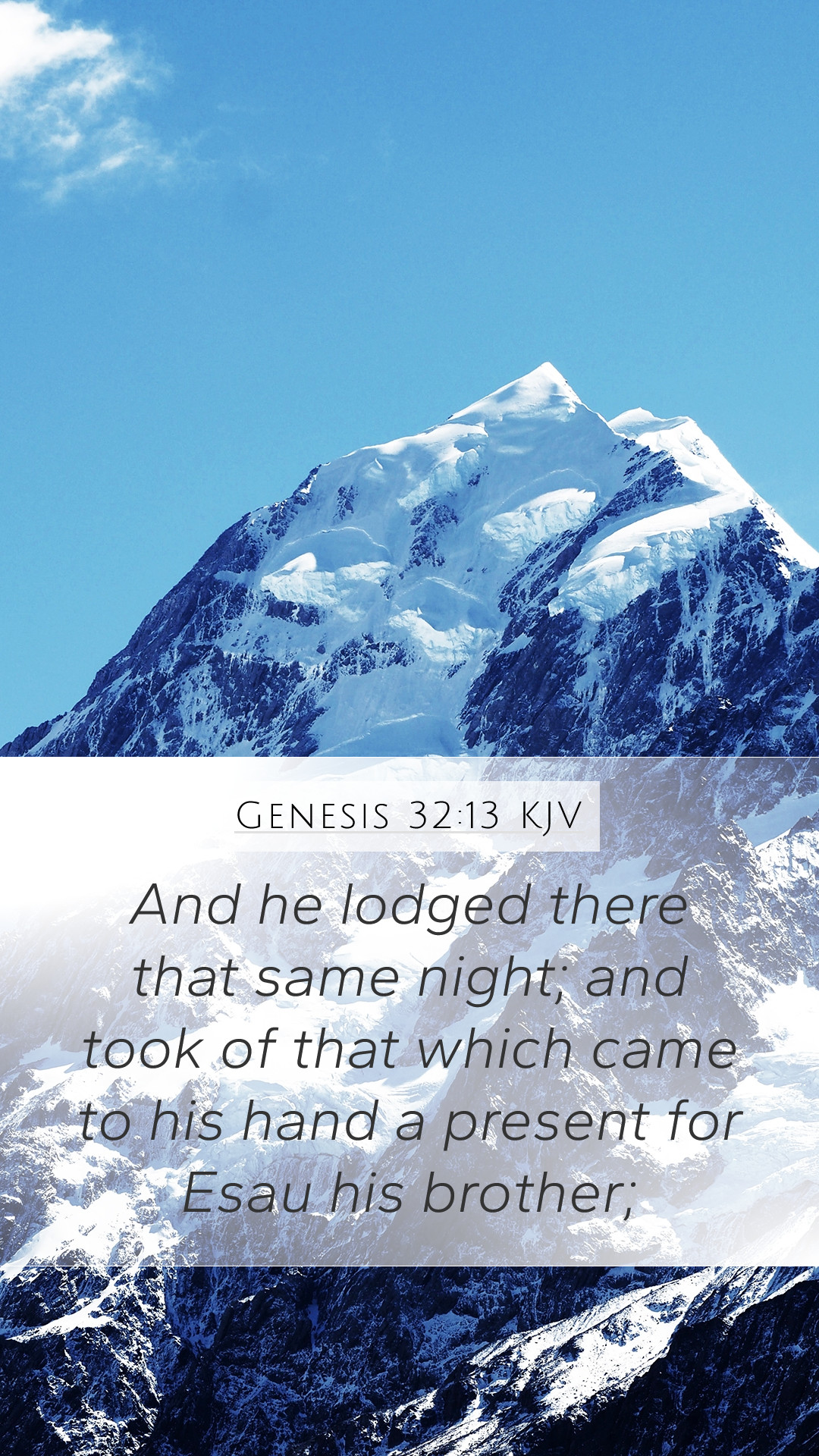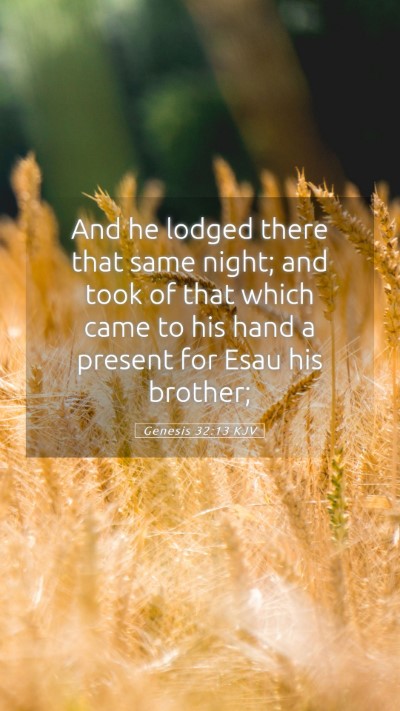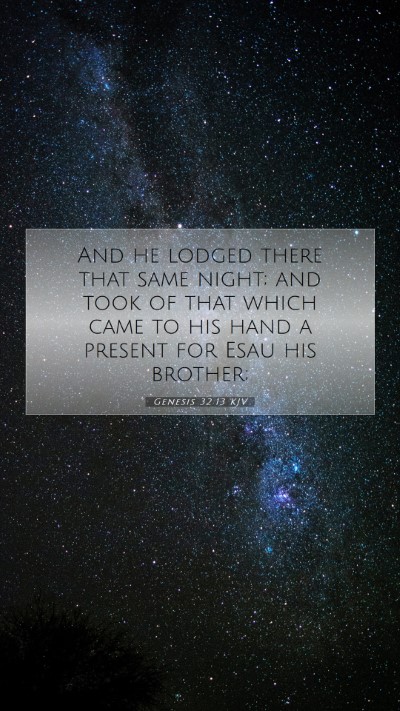Understanding Genesis 32:13 - A Comprehensive Bible Verse Commentary
Bible Verse: Genesis 32:13
Verse Text: "And he lodged there that same night; and took of that which came to his hand a present for Esau his brother."
Overview: This verse occurs in the context of Jacob's return to his homeland after years of living with Laban. Jacob, fearing the wrath of his brother Esau, prepares a substantial gift to appease him. This section of Scripture is vital in understanding Jacob's character and his relationship with God and his family.
Insights from Public Domain Commentaries
Matthew Henry's Commentary
Henry highlights Jacob's careful planning and foresight. He notes that Jacob’s lodging signifies a time of reflection and preparation. By choosing to send gifts ahead to Esau, Jacob demonstrates both his humility and his desire to reconcile. This act can also be understood as a way to acknowledge past wrongs and seek forgiveness. Henry emphasizes the importance of approaching those we’ve wronged with humility, mirroring Jacob's actions.
Albert Barnes' Notes on the Bible
Barnes discusses the significance of the gifts Jacob prepared for Esau as an expression of his contrition and respect. He argues that such practices were common in ancient times to demonstrate goodwill and broker peace. The phrase "that which came to his hand" indicates Jacob’s resourcefulness and his willingness to sacrifice for restoration of the family bond. Barnes also reminds us that this moment reflects a man's struggle with his past and the steps taken toward rectification.
Adam Clarke's Commentary
Clarke delves deeper into the human emotions behind this narrative, pointing out Jacob's fear and need for appeasement. He elaborates on the idea that Jacob had wronged Esau in the past and how this moment highlights the need for brotherly reconciliation. Clarke emphasizes that the gifts were not just material offerings but symbolic acts of reconciliation, showcasing the importance of mending broken relationships.
Significance of Genesis 32:13
This verse offers rich insight into several themes:
- Reconciliation: Jacob's efforts to reconcile with Esau reflect the fundamental theme of forgiveness and acceptance.
- Fear and Faith: Jacob's actions illustrate the tension between fear of confrontation and faith in God's promises of protection.
- Preparation: The strategic planning involved in sending gifts underscores the balance between relying on God and using practical means to address conflicts.
Biblical Exegesis: Historical Context
Understanding the Context:
To grasp the full meaning of Genesis 32:13, it is crucial to consider the historical context. Jacob had previously deceived Esau, taking his birthright and blessing. This history created a significant rift between the brothers. As Jacob approaches the land of Canaan after many years, he faces the consequences of his past decisions. This moment signifies not only personal growth but also the importance of rectifying wrongs whenever possible.
Application to Daily Life
Genesis 32:13 encourages believers to reflect on their relationships and the importance of reconciliation. It serves as a reminder to:
- Approach those we’ve wronged with humility and a desire for restoration.
- Prepare ourselves to face difficult situations with grace and strategic planning.
- Recognize that seeking forgiveness is a step toward healing and growth.
Related Bible Cross References
- Genesis 27: The deceitful acquisition of Esau's blessing.
- Genesis 33:4: Esau's joyful reconciliation with Jacob.
- Matthew 5:23-24: The importance of reconciliation before offerings.
Conclusion
In conclusion, Genesis 32:13 encapsulates vital themes of reconciliation, humility, and personal growth. Through various commentaries, we gain a deeper understanding of Jacob's motivations and actions as he seeks to make amends with his brother. This verse serves not only as a historical account but as a practical guide for modern believers on the importance of addressing past grievances and fostering relationships grounded in forgiveness.


